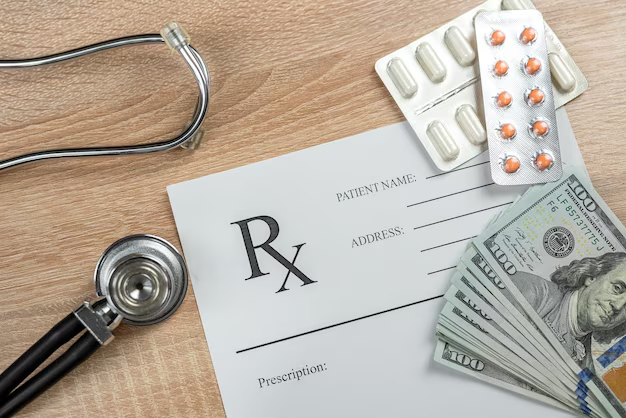Can Medical Debt Affect Your Credit Score? Understanding the Impact and Navigating Solutions
In today's world, medical emergencies can strike without warning, often leaving individuals and families not only with health concerns but also with significant financial challenges. One of the pressing questions that arises in such situations is: Can medical debt affect your credit score? Understanding this issue is crucial because a person's credit score can influence their ability to secure loans, rent homes, and even find employment opportunities. Let's delve into the various facets of how medical debt can impact your credit and what steps you can take to manage it effectively.
📊 Medical Debt and Credit Scores: The Core Connection
Medical debt can indeed affect your credit score, but the relationship is nuanced and has evolved recently due to regulatory changes. Here’s what you need to understand about how medical debt finds its way into your credit reports:
How Medical Debt Appears on Credit Reports
Delayed Reporting: Generally, unpaid medical debts can end up on your credit report, but most credit reporting agencies give a grace period before the debt affects your score. This waiting period, often around 180 days, provides patients with some time to settle their dues or make arrangement plans with healthcare providers.
Collections: If the debt isn't settled within this time, the healthcare provider may transfer the account to a collections agency. Once the debt is in collections, it poses a serious risk to your credit score.
Recent Credit Bureau Changes: In recent years, credit bureaus like Equifax, Experian, and TransUnion made changes to minimize the impact of medical debt on credit scores by not including medical collection debt under $500 and by excluding paid medical collection debt from reports.
The Impact on Your Credit Score
Severity: Unpaid medical collections can stay on credit reports for up to seven years, although they may have less impact over time.
Credit Utilization: Medical debts don’t typically affect credit utilization rates (as these are often installment debts rather than revolving credit), but collections can lower your score significantly.
Factors Influencing the Impact
Amount of Debt: Larger medical debts may worry creditors more, potentially impacting your score more heavily.
Current Credit Standing: If your credit score is already low, the addition of a medical debt collection can further decrease it, but those with higher scores may notice a more significant drop.
Resolution Timeline: Quickly settling debts or creating payment plans with either healthcare providers or collection agencies can mitigate potential damage to your credit.
🏛️ Navigating Medical Debt: Legal Protections and Solutions
Key Legal Protections
The Fair Credit Reporting Act (FCRA) provides several protections related to medical debts:
Accuracy and Privacy: Credit reports must accurately represent medical debts, ensuring that specific medical conditions or treatments aren’t disclosed in the process.
Dispute Rights: Consumers can dispute inaccuracies on their credit reports, prompting credit bureaus to verify the disputed information.
The Consumer Financial Protection Bureau (CFPB) also works to protect consumers from misleading practices by medical debt collectors, ensuring transparency and fairness in the process.
Practical Steps to Manage Medical Debt
Confirm the Debt: Always verify the bill thoroughly; medical billing errors are common. Ensure the bill isn't a duplicate and that your insurance has processed coverage.
Negotiate with Providers: Many healthcare providers offer financial assistance programs or can negotiate a lower bill. Don’t hesitate to ask for a reduction or an extended payment plan.
Payment Plans: Opt for a payment plan that you can afford over time. This keeps the debt out of collections and minimizes credit impact.
Medical Credit Cards: For those who can commit to monthly payments, medical credit cards can offer interest-free periods.
Explore Nonprofit Organizations: Some nonprofit organizations can provide financial assistance with hefty medical bills.
Debt Settlement: If your debt is in collections, it's possible to negotiate a settlement for less than what you owe, potentially part of a paid-in-full status that won't hurt your credit.
Seek Professional Help: Credit counselors can help you create a budget and negotiate with creditors on your behalf.
💡 Summary: Key Takeaways at a Glance
Here's a quick summary of the steps and points discussed on managing and understanding medical debt impacts:
- 🛡️ Protect Your Credit: Always confirm bills and negotiate with providers first.
- 📑 Use Your Rights: Keep inaccuracies off credit reports through your dispute rights.
- 🤝 Payment Plans: Establish affordable payments to prevent debt from collections.
- 🎯 Strategic Payments: Aim to settle or pay down collections debt swiftly if possible.
- 🔍 Stay Informed: Keep abreast of changes in credit reporting policies regarding medical debt.
📈 Conclusion: Being Proactive and Informed
Navigating the challenges of medical debt requires a proactive approach and a thorough understanding of your rights and options. By keeping informed about how medical debts can impact credit scores and by employing strategic management of these debts, consumers can avoid long-term financial repercussions and maintain healthier credit profiles. While medical emergencies can be daunting, informed decision-making and diligent financial practices can prevent them from becoming detrimental to your financial health.
The impact of medical debt on credit is significant but manageable. By exploring various resources and taking advantage of legal protections, you can minimize the risks and navigate these financial hurdles with confidence.

Related Topics
- Am I Responsible For My Spouse's Medical Debt
- Am I Responsible For My Spouse's Medical Debt After Death
- Can Medical Debt Affect Credit
- Can Medical Debt Affect Your Credit
- Can Medical Debt Affect Your Credit Score
- Can Medical Debt Be Sent To Collections
- Can Medical Debt Garnish Wages
- Can Medical Debt Go On Your Credit Report
- Can Medical Debt Go To Collections
- Can Medical Debt Hurt Your Credit
